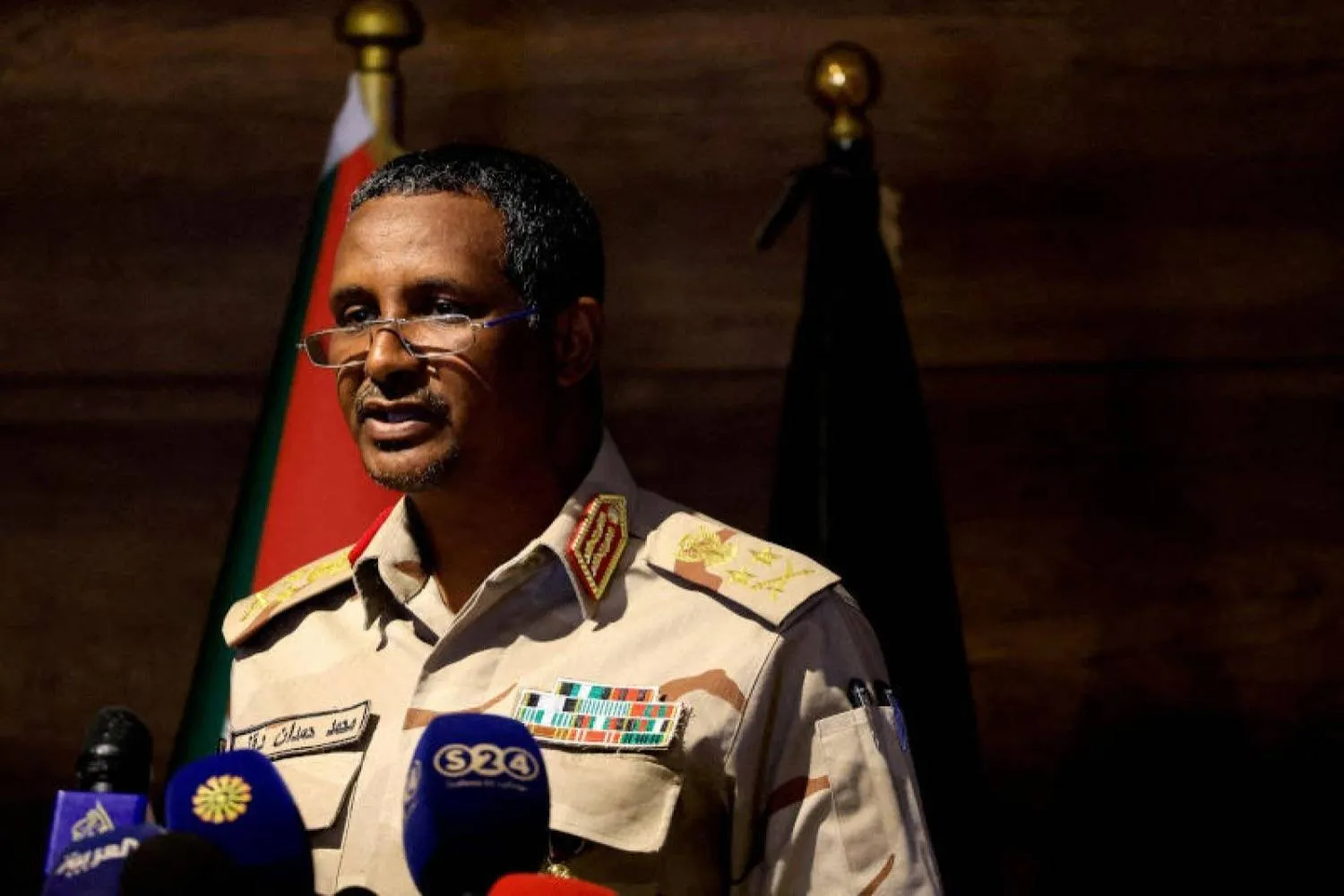Commander of Sudan’s Rapid Support Forces (RSF) Mohammed Hamdan “Hemedti” Dagalo pledged on Monday to take action that would bar the army from ruling the country.
In a post on the X platform, he vowed to prevent “a group of terrified generals who fled the capital” from controlling Sudan’s fate.
He added that he has “several options” at his disposal that he may “have to carry out when necessary.” He did not elaborate.
He made his remarks in response to the army’s refusal to take part in the ongoing Geneva peace negotiations.
Officials met for a sixth day of talks in the Swiss capital on Monday without reaching a breakthrough. The army has refused to attend without a prior agreement on its demands. The RSF is present at the talks.
The military has been demanding that it act as the government representative at the talks and the withdrawal of RSF forces from residential areas.
It has also been calling for the implementation of the Jeddah Humanitarian Declaration, signed in May 2023, as a precursor for attending.
The Geneva talks are being held at the United States’ initiative and are being sponsored by Saudi Arabia and Switzerland. The United Nations, African Union, Egypt and United Arab Emirates are attending.
The talks are aimed at reaching a ceasefire and delivering humanitarian aid to the people. The army’s refusal to attend has been a major hurdle in ensuring their success.
“Burhan and his gang lack any real commitment to negotiate or work for the future of Sudan and easing the suffering of its people,” remarked Hemedti.
“Meanwhile, our negotiating delegation is in Geneva because it genuinely wants to reach a solution to the Sudanese crisis,” he stressed.
The army, he alleged, wants to preserve the interests of the ousted regime.
Hemedti reiterated his commitment to the negotiations “to achieve stability in Sudan.”
Moreover, he called on the gatherers in Geneva to take a “decisive position” to confront the “army’s recklessness towards the suffering of millions of Sudanese people and towards peace and stability.”









